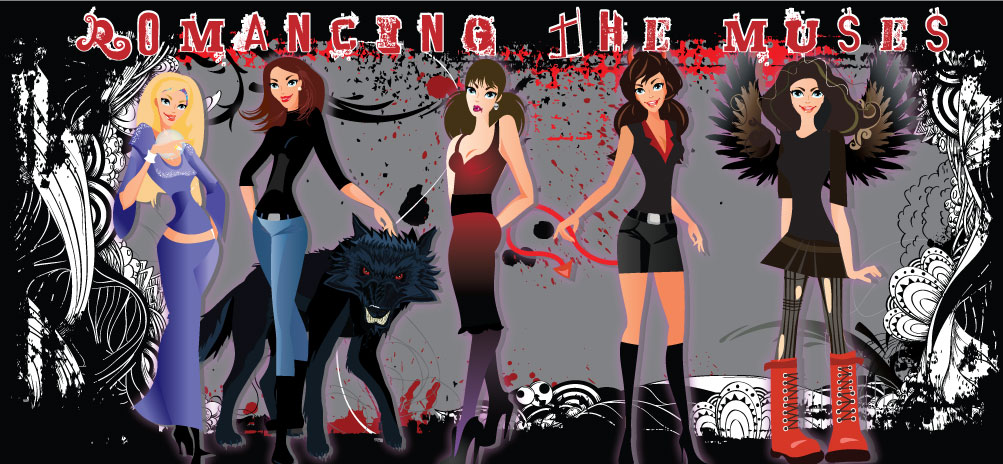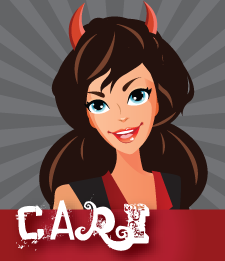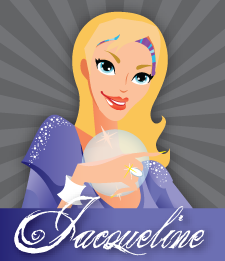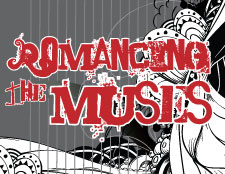Last week, I likened my move to outlining to make sure those ideas you get at random points throughout the day don’t get left behind in the frenzy to get words on paper. This week, I’m going to use the same analogy, only on the other end.
So I’ve moved. My husband and I boxed, trucked, transported, and unloaded all our earthly belongings. We did it in less than a week, and I must say, I am most impressed with us. Of course, I am achy and tired now, and don’t want to consider the boxes I have now to unpack and the various items that now need a new place. I mean, I did the hard part, right? Isn’t a break in order?
In the writing industry, there are no breaks. Sorry. Unless you want to stop seeing your name on Coming Soon lists, you don’t get to pause. If it’s not writing, it’s editing. If it’s not editing, it’s promoting. If it’s not promoting, it’s writing. Writing is just Phase One. Finishing the manuscript feels fantastic, certainly, but don’t let yourself get too comfortable. You still have to read through the damn thing again, send it to CPs, make adjustments, tweak out unnecessary words/scenes, make sure your characters’ eyes stay the same color throughout, write a blurb, condense your manuscript into a 3-page synopsis, send it to the publisher(s), sign your contract, fill out cover art forms, meet your editor, complete edits, and then when release day hits the real work begins.
Seem like a lot? It is. But if you’re serious about what you do, you’ll look forward to each step.
I suppose the trick is to take it in installments. For me, I’m handling my move with one box at a time, one room at a time. It’ll take a while, but I’d rather go slow and cautious than wonder where the heck I put my laptop power cord. It’s also important to get a checklist or filing system in place, that way you can cross off the hurdles as they come. Promotion? Review sites? Publishers? I have a folder for each in my email box, and with as handy as folders are, there is no excuse to remain disorganized.
For many people, writing is a job. That doesn’t mean you don’t love your job—I love writing, and while I could take or leave the rest, I have to recognize its value. And yes, you get to set the hours and determine when you’re going to show up for work, but unless you have put in the hours, you can’t realistically expect your first paycheck to be spectacular.
Monday, September 26, 2011
Monday, September 19, 2011
Though this be madness, yet there is method in't.
Right now, the downstairs of my townhouse is in complete disarray. For the past few months, the hubs and I have been looking at houses, duplexes, and luxury apartments; over the weekend, we found the one we wanted. Perfect location, perfect price, perfect size – the full nine yards. Being that we don’t want to pay double rent, we must motor in order to get out of our current place by the end of the month. Thankfully, we had the foresight to go month to month well before our lease was set to expire/renew; all that’s left is the actual approval of our application and notifying our current landlords that we won’t be here in October.
In the meantime, we have a week to pack. Well, the big stuff, at least. The townhouse is a freakin’ warzone. Donating two trash bags, two suitcases, and one plastic tub full of clothing, not to mention selling enough DVDs to bring in over $300, has done little to dent the amount of stuff the hubs and I have collected over the years.
Being scattered, disorganized, frenzied, and without direction obviously isn’t unique to moving. We have a goal: get the hell out of our place and into the new one. Writers also have a goal: take an idea, nurture it, build upon it, watch it mature, and turn it into a coherent piece of literature. If you think this task is any less daunting, you’re kidding yourself. Piecing scenes, characters, plot arcs, twists, conflict, relationships, and resolution into an entertaining, captivating, well-written story that any publisher would be proud to brand is downright terrifying.
Even for you pantsers out there, there is no harm in keeping a small notebook close at hand for when inspiration strikes. You could be standing in the checkout line at Wal-Mart and suddenly know how to dig yourself out of the hole you’ve managed to land in. By the time you sit down to write it, though, the finer details might have escaped you, so you’re back at square one. And please, from someone who has learned from experience do not rely on your memory to keep things in check. I don’t care how sharp you think you are, you are bound to forget where you packed what. This doesn’t necessarily mean keeping a detailed journal (as I do), but scribbling coherent notes will save you a lot of searching, and notes are not set in stone. My aunt once lamented over the fact she had taken the time to write a quick two-word descriptor for a project, yet without reference or reason, had no idea what she meant when she got back around to it. I know myself too well to think I can keep everything locked in my mind, and my memory has been lauded by friends has being freakishly accurate.
If you find yourself staring down a monstrous undertaking, take a deep breath. More often than not, things have a way of working themselves out…no matter how unlikely it might seem at the time.
In the meantime, we have a week to pack. Well, the big stuff, at least. The townhouse is a freakin’ warzone. Donating two trash bags, two suitcases, and one plastic tub full of clothing, not to mention selling enough DVDs to bring in over $300, has done little to dent the amount of stuff the hubs and I have collected over the years.
Being scattered, disorganized, frenzied, and without direction obviously isn’t unique to moving. We have a goal: get the hell out of our place and into the new one. Writers also have a goal: take an idea, nurture it, build upon it, watch it mature, and turn it into a coherent piece of literature. If you think this task is any less daunting, you’re kidding yourself. Piecing scenes, characters, plot arcs, twists, conflict, relationships, and resolution into an entertaining, captivating, well-written story that any publisher would be proud to brand is downright terrifying.
Even for you pantsers out there, there is no harm in keeping a small notebook close at hand for when inspiration strikes. You could be standing in the checkout line at Wal-Mart and suddenly know how to dig yourself out of the hole you’ve managed to land in. By the time you sit down to write it, though, the finer details might have escaped you, so you’re back at square one. And please, from someone who has learned from experience do not rely on your memory to keep things in check. I don’t care how sharp you think you are, you are bound to forget where you packed what. This doesn’t necessarily mean keeping a detailed journal (as I do), but scribbling coherent notes will save you a lot of searching, and notes are not set in stone. My aunt once lamented over the fact she had taken the time to write a quick two-word descriptor for a project, yet without reference or reason, had no idea what she meant when she got back around to it. I know myself too well to think I can keep everything locked in my mind, and my memory has been lauded by friends has being freakishly accurate.
If you find yourself staring down a monstrous undertaking, take a deep breath. More often than not, things have a way of working themselves out…no matter how unlikely it might seem at the time.
Wednesday, September 14, 2011
You Will Improve
I've talked about this before, but I felt like touching on the topic again. It's not something that's easy to write about, because it reveals the insecurities authors experience (at least me, anyway). I'm referring to the projects that aren't quite "there." The short stories, novellas, or full length works that are decent after completion but seem to turn to uber-trash when release day is near and an author realizes the entire world will be able to read them.
I've never denied that I don't like much of my work. Don't get me wrong, I do enjoy writing them -- very much, in fact. However, that elated feeling I experience always sours when it's time to get the book in shape for the reading public. Perhaps it's due to edits, which will make anyone's confidence deflate. Or maybe it's due to the fact that authors do become better at their craft with each book they write.
The truth is earlier works will "probably" show inexperience -- at least to the person who wrote them. Although an author is attached to a story, they are usually the first to see mistakes when they open the file and give it a read. Perhaps it's passive voice, or repetitive word choice. Whatever their weaknesses at the time, I can guarantee an author will spot them time and time again when they go over their stories. I've spoken to authors who are as guilty of this as I am. Once you start nit-picking, it's difficult to stop.
So what's the point of the blog? What message am I trying to share?
Keep writing.
You will get better. You will improve. If you're tempted to revisit an earlier work, do so understanding that you're continuing to evolve, therefore you might not be pleased with things you wrote a couple of years ago. If you're feeling down about a manuscript, remember this: Look forward, not back.
Now, for the eye candy of the week!
I've never denied that I don't like much of my work. Don't get me wrong, I do enjoy writing them -- very much, in fact. However, that elated feeling I experience always sours when it's time to get the book in shape for the reading public. Perhaps it's due to edits, which will make anyone's confidence deflate. Or maybe it's due to the fact that authors do become better at their craft with each book they write.
The truth is earlier works will "probably" show inexperience -- at least to the person who wrote them. Although an author is attached to a story, they are usually the first to see mistakes when they open the file and give it a read. Perhaps it's passive voice, or repetitive word choice. Whatever their weaknesses at the time, I can guarantee an author will spot them time and time again when they go over their stories. I've spoken to authors who are as guilty of this as I am. Once you start nit-picking, it's difficult to stop.
So what's the point of the blog? What message am I trying to share?
Keep writing.
You will get better. You will improve. If you're tempted to revisit an earlier work, do so understanding that you're continuing to evolve, therefore you might not be pleased with things you wrote a couple of years ago. If you're feeling down about a manuscript, remember this: Look forward, not back.
Now, for the eye candy of the week!
Labels:
JA Saare,
Jaime,
regarding: writing
Monday, September 12, 2011
Live and Let Die
So for the past few weeks, I have barely written 500 words. This wasn’t a byproduct of a creativity drought or anything of the sort—I have stories I want to tell, yet obligations piling upon obligations, and finding time for the self and the muse becomes more and more burdensome. Needless to say, edits arrived, and I’ve been buried in them.
It’s somewhat unique to be in the middle of a serious edit on someone else’s manuscript and receive edits for one of your babies. I am immensely pleased overall with the changes suggested by my editor, Ruby Green, for today’s release. I feel she more than did her job, especially considering the story was such a short one. It’d be easy to do perhaps two rounds and say “good enough,” but she didn’t. And I’m glad, because I’m confident the product that hit the e-shelves was the best version of the story out there.
On the other hand, I received these edits while editing a new manuscript by an author with whom I was unfamiliar. I won’t go into details here, but needless to say, after completing edits for my release, completing the first markup on this assignment, and sending it back to the author, switching back into writing mode proved a little difficult. Often when I’ve been editing a project for some time, it’s hard for me to break from an editor mindset. I find myself second-guessing every word I put on the page. I suppose this experience was exacerbated by the fact that I had not only spent hours pointing out areas of concern in another’s work, but had my own short story picked apart (and well). Therefore, the issues I began seeing with each fresh word compiled to a point of “WTF was I thinking?!”
This sentiment was familiar, which likely contributed to it being short-lived. Here’s the thing: writing and editing, while related, are two completely different fields. If you try to merge them, it doesn’t work. There will be time for me to go back and apply the things I’ve learned over the past few weeks to current writing projects after the words are on the page. But worrying about how it sounds as I’m writing it won’t do anyone any good.
Rereading is important. Implementing things you’ve learned along the way is important. But you can only do these things if you manage to find the words in the first place.
It’s somewhat unique to be in the middle of a serious edit on someone else’s manuscript and receive edits for one of your babies. I am immensely pleased overall with the changes suggested by my editor, Ruby Green, for today’s release. I feel she more than did her job, especially considering the story was such a short one. It’d be easy to do perhaps two rounds and say “good enough,” but she didn’t. And I’m glad, because I’m confident the product that hit the e-shelves was the best version of the story out there.
On the other hand, I received these edits while editing a new manuscript by an author with whom I was unfamiliar. I won’t go into details here, but needless to say, after completing edits for my release, completing the first markup on this assignment, and sending it back to the author, switching back into writing mode proved a little difficult. Often when I’ve been editing a project for some time, it’s hard for me to break from an editor mindset. I find myself second-guessing every word I put on the page. I suppose this experience was exacerbated by the fact that I had not only spent hours pointing out areas of concern in another’s work, but had my own short story picked apart (and well). Therefore, the issues I began seeing with each fresh word compiled to a point of “WTF was I thinking?!”
This sentiment was familiar, which likely contributed to it being short-lived. Here’s the thing: writing and editing, while related, are two completely different fields. If you try to merge them, it doesn’t work. There will be time for me to go back and apply the things I’ve learned over the past few weeks to current writing projects after the words are on the page. But worrying about how it sounds as I’m writing it won’t do anyone any good.
Rereading is important. Implementing things you’ve learned along the way is important. But you can only do these things if you manage to find the words in the first place.
Wednesday, September 7, 2011
Show v/s Tell
Hi, everyone!
Since I'm taking care of a sick kidlet and time is short, I figured I'd do a blog about show v/s tell. As it's impossible to write anything with a child in my lap, I decided to provide a few resources for you instead. I hope they help clarify the difference between show and tell. Trust me when I say it's extremely important to know and recognize the difference between the two. While "show" is fine here and there, "tell" really brings a story to life.
On Show v/s Tell:
CLICK TO REDIRECT
CLICK TO REDIRECT
Thanks to my fellow muse, Rosalie, for helping me with links. I'll be back next week! Now for eye candy!
Since I'm taking care of a sick kidlet and time is short, I figured I'd do a blog about show v/s tell. As it's impossible to write anything with a child in my lap, I decided to provide a few resources for you instead. I hope they help clarify the difference between show and tell. Trust me when I say it's extremely important to know and recognize the difference between the two. While "show" is fine here and there, "tell" really brings a story to life.
On Show v/s Tell:
CLICK TO REDIRECT
CLICK TO REDIRECT
Thanks to my fellow muse, Rosalie, for helping me with links. I'll be back next week! Now for eye candy!
Labels:
JA Saare,
Jaime,
regarding: writing
Tuesday, September 6, 2011
It seems any author I talk to out there has the same gripe,
issue or in my case whine - "Do we really have to promote?"
and the other half of that is "Where do I start?".
Yes I know I need to promote, but unfortunately I am already
about 30 hours short on time each week so how do I go about it?
I don't have the right answers so I found someone that can lay it
all out pretty and have it make sense!
I'm thrilled to have Author / Reviewer / Publicist Roxanne Rhoads
here today to share with us some of the how's and why's to this
world of writing and selling.
issue or in my case whine - "Do we really have to promote?"
and the other half of that is "Where do I start?".
Yes I know I need to promote, but unfortunately I am already
about 30 hours short on time each week so how do I go about it?
I don't have the right answers so I found someone that can lay it
all out pretty and have it make sense!
I'm thrilled to have Author / Reviewer / Publicist Roxanne Rhoads
here today to share with us some of the how's and why's to this
world of writing and selling.
Promotion and Authors
By Roxanne Rhoads
Promotion- it’s a bad word for many authors…downright evil… but a necessary evil.
A small percentage of authors revel in the spotlight and have no problem talking, promoting, and selling.
But most of us…well we’d rather be writing. And not writing about our books or ourselves, just writing the books.
What happened to the days when the reclusive author typed away in their little hermit like abode, sent the manuscript off to a publisher who handled everything and the author sat back and got rich while writing more books?
I think that image is a fairy tale, I’m not sure if that was ever a reality at all but when I was young that’s how I envisioned the author’s world. Then I started writing books- and thought that once a publisher accepted and published my work the hard part was over. Boy was I wrong.
Thanks to the internet and technology more books than ever are being published every day- and it’s very easy to get loss in the ever growing a sea of pages and book covers.
What can an author do to stand out from the crowd?
Promotion.
Yes, there’s that damn word again but honestly it’s what can make or break your book. The other, I swear, is simply luck, and maybe a pact with the devil.
I’ve seen amazing books totally tank in sales and crap books, poorly written with sentences that run on and are hard to read, make the bestseller list on Amazon, repeatedly.
Why? Promotion.
For the past several years I have been on a quest to learn everything I can about the book business and book world, from all angles- author, editor, publicist, reviewer, book blogger, even publisher (I self-published a short story collection this year)- and I’ve learned a lot.
So what words of wisdom can I share with authors who are looking for the secrets to book success?
First of all- web presence.
What’s the first thing many people do when they hear about something- whether it’s a book, business, or new product?
They Google it.
That’s why an author should have a website- a good one, a professional one that showcases their author/book brand. If you write paranormal books your website should have a hint of the paranormal in it- should it showcase screaming skulls and blood dripping fangs? Probably not. Keep it tasteful and professional while making it clear you are a paranormal author, or romance author, or whatever.
Your website can sell you and your books 24 hours a day, 7 days a week all over the world. Nothing else can reach as wide an audience 24/7.
The author website should have 6 key things to be successful- a way to contact you, your bio, your bookshelf (if you write in different genres or have a couple different series then you should have separate pages for each genre or series), a calendar or schedule of author appearances whether in the real world or online, a page of fun stuff and/or links that relate to your books, and your media page which should contain an author photo, media ready bio, sample author Q and A, and your most recent book cover and blurb.
I also suggest having a regularly updated blog and newsletter that readers can subscribe to.
Also be sure to utilize Author Central at Amazon, you can add your links and blog feed to your author page.
Which brings me to the next thing an author needs to utilize…social media- Twitter, Facebook, Goodreads- these are some of the most popular social media outlets for connecting with readers and other authors. The idea is to build is solid foundation of reader and author followers. Do this by posting fun and informative tweets and updates- not just promo. And you can link all your accounts together through apps at Twitter and Facebook or through outside apps like HootSuite.
An author should also stay up to date on what’s popular and working in the online book world- for example: book trailers, book soundtracks, Twitter parties, virtual book tours.
Do book trailers or soundtracks sell books? In my opinion no, but they are great tools for sharing your book (these would fall under that fun stuff category above to include on your website).
Virtual book tours, however, are one of the best ways to spread the word about your book. You can reach a worldwide audience without ever leaving your home at a tiny fraction of the cost of a real world book tour.
The goal is not just book sales but reaching out and gaining new followers. After a book tour you should see the subscribers list to your newsletter has grown, you have more Twitter and Facebook followers, and the number of blog followers you have has increased- and hopefully your book sales have skyrocketed.
So what do you do during a book tour? You’ll write guest posts, fill out and interviews, and sometimes participate in live chats and podcast and radio interviews at different blogs and sites around the web. The book tour company will schedule everything.
The key is choosing the best company for your book- find a company that has handled many books in your genre and that shows a good track record. If you only see one or two previous tours done by this company perhaps you should move on to the next book tour company- and new ones pop up every day. Do your homework before laying down the cash. While no book tour business can guarantee sales or great reviews they should be able to provide you with proven capability, organization and a certain amount of tour stops based on what you paid for.
Are real live book events things of the past? No, not at all.
By all means go out to local book stores, libraries, seasonal and holiday events and set up signings, schedule fun events that will bring people in- work with other authors to create group things that draw a crowd.
For instance if you write paranormal books- get out there at Halloween events and sell your stuff. Set up tables for sales and signings at Halloween reading and parties at local libraries, (schools too if your book is kid oriented), hayrides, even haunted houses. Work with your community to promote your book. You might be surprised at how many local businesses and event planners will be thrilled to have something unique and special (like an author) be a guest at their holiday event.
And be sure to bring business cards, bookmarks or even the hot new thing in real world book promo- book trading cards, to all your live book promotions. Pass them out at local libraries and bookstores too.
The key is- get out and promote. You are not going to get anywhere as an author being a hermit and hiding in your house tapping away at the keys of your computer.
Publication is only the beginning of the process…promotion is the road to success.
~Roxanne Rhoads is a publicist for Entangled Publishing, the owner of Bewitching Book Tours and is a paranormal romance author, book blogger, and book reviewer.
Thanks again, Roxanne!!
Monday, September 5, 2011
Labor Day!
I'm editing my own stuff, other stuff, and trying to squeeze some writing in there, but I did want to take a break to say the following:
Do it so I can live vicariously through you, mmkay?
And tune in next Monday for an actual post. :)
Do it so I can live vicariously through you, mmkay?
And tune in next Monday for an actual post. :)
Subscribe to:
Posts (Atom)















